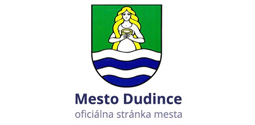Spa Dudince

The spa town of Dudince is situated in a picturesque environment, in which the effects of unique mineral water combine with healing impact of unspoiled countryside. Thirty-two natural travertine pools called the Roman Spa make it evident that this combination of unique qualities had already been known to ancient people.
The first written evidence of Dudince, then called Dyud, comes from 1248. In the past, the international road “Via Magna” connecting Budapest with Krakow and the Baltic Sea went through Dudince. Mineral water was used for treatment of rheumatism, ophtalmitis, skin and digestive diseases already in the Middle Ages – as evident in the works by Matej Bel and the professor von Crantz in the 18th century. Around 1890, Vienna specialists arrived in Dudince to explore the springs, which, based on their results, were officially acknowledged as healing ones in 1894. It was a breakthrough in the spa history and awareness of their healing effects started to be spread. The most special guest – popular empress Elizabeth, known as Sisi, was convinced of its healing effects as well.
At that time water was mostly used for drinking; it was even bottled and exported to America and Egypt at the beginning of the 20th century. At that time the following advertising slogan was created: “Healing water of Dudince, the queen of all mineral waters” and the first mineral pools were put to operation. Hugo Oberndorff, the owner of one of the springs had built one pool for his family; the second one was built by Filip Gutmann, after whom the pool and springs were rented by Kálmán Brázzay from Budapest.
After the World War II, the history of Dudince as a spa town with a complex care started to be written – in the 50´s extensive hydrogeological research was made and in the60´s the first spa houses had started built. Every year thousands of Slovak and foreign clients visit Dudince because of our cosy environment, excellent services for reasonable prices and especially the unique Water that heals.
Fotografie k článku:












 Dudince sa nachádzajú v nadmorskej výške 140 m n.m., na upätí Krupinskej kotliny v okrese Krupina v trojuholníku Bratislava, Banská Bystrica, Budapešť v čistom životnom prostredí bez exhalátov priemyslu...
Dudince sa nachádzajú v nadmorskej výške 140 m n.m., na upätí Krupinskej kotliny v okrese Krupina v trojuholníku Bratislava, Banská Bystrica, Budapešť v čistom životnom prostredí bez exhalátov priemyslu...